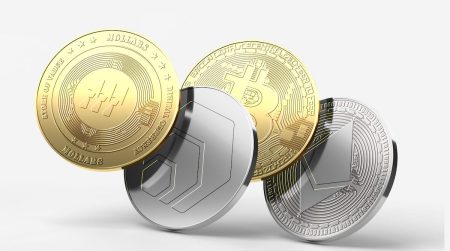Fiat-backed stablecoins are “not a safe store of value,” according to a new research report from the Bank for International Settlements (BIS).
According to the report, the BIS found that from January 2019 to September 2023, fiat-backed stablecoins were able to maintain their peg ratio only 94% of the time, falling short of the 100% assurance often promised in project white papers.
Crypto-backed stablecoins and commodity-backed stablecoins fared even worse, with peg ratios of 77% and 50%, respectively.
Lack of data about users & uses of #stablecoins makes it difficult to ascertain the risks they pose to the smooth functioning of payment systems & financial stability, which may hamper authorities’ ability to put in place effective policies and safeguards https://t.co/XivilF85HI pic.twitter.com/dAk8U4hEG1
— Bank for International Settlements (@BIS_org) November 8, 2023
The BIS highlighted that only seven fiat-backed stablecoins managed to keep their deviations from the peg below 1% for more than 97% of their lifespan.
Notably, Tether (USDT) and USD Coin (USDC), the two most-used stablecoins in the market, met this standard, while other fiat-backed stablecoins experienced more frequent and larger deviations from their pegs.
Stablecoins generally attempt to maintain a 1-to-1 peg to an underlying fiat currency, most often the US dollar. However, stablecoins backed by other currencies like the euro or gold have also gained popularity in recent times.
For the purposes of its own research, the BIS categorized stablecoins as either fiat-backed stablecoins, crypto-backed stablecoins, commodity-backed stablecoins, or unbacked stablecoins.
Concerns about transparency of reserves for stablecoins
In addition to questioning the stability of peg ratios, the BIS raised concerns about the lack of scrutiny in stablecoin issuers’ reserve practices, saying some issuers do not engage independent certified public accountants to audit their reserves.
Even when audits are conducted, the BIS noted a lack of a common reporting standard in reserve reports.
The report emphasized the potential uncertainties regarding the ability of stablecoins to convert users’ assets at par on demand and the potential financial stability implications in the event of a run.
“As a result, it is impossible to assess with any degree of confidence the quality of the underlying reserve assets of many stablecoins,” the BIS wrote, adding that this makes it “unclear whether these stablecoins would be able to convert users’ stablecoins at par on demand.”
Read the full article here













